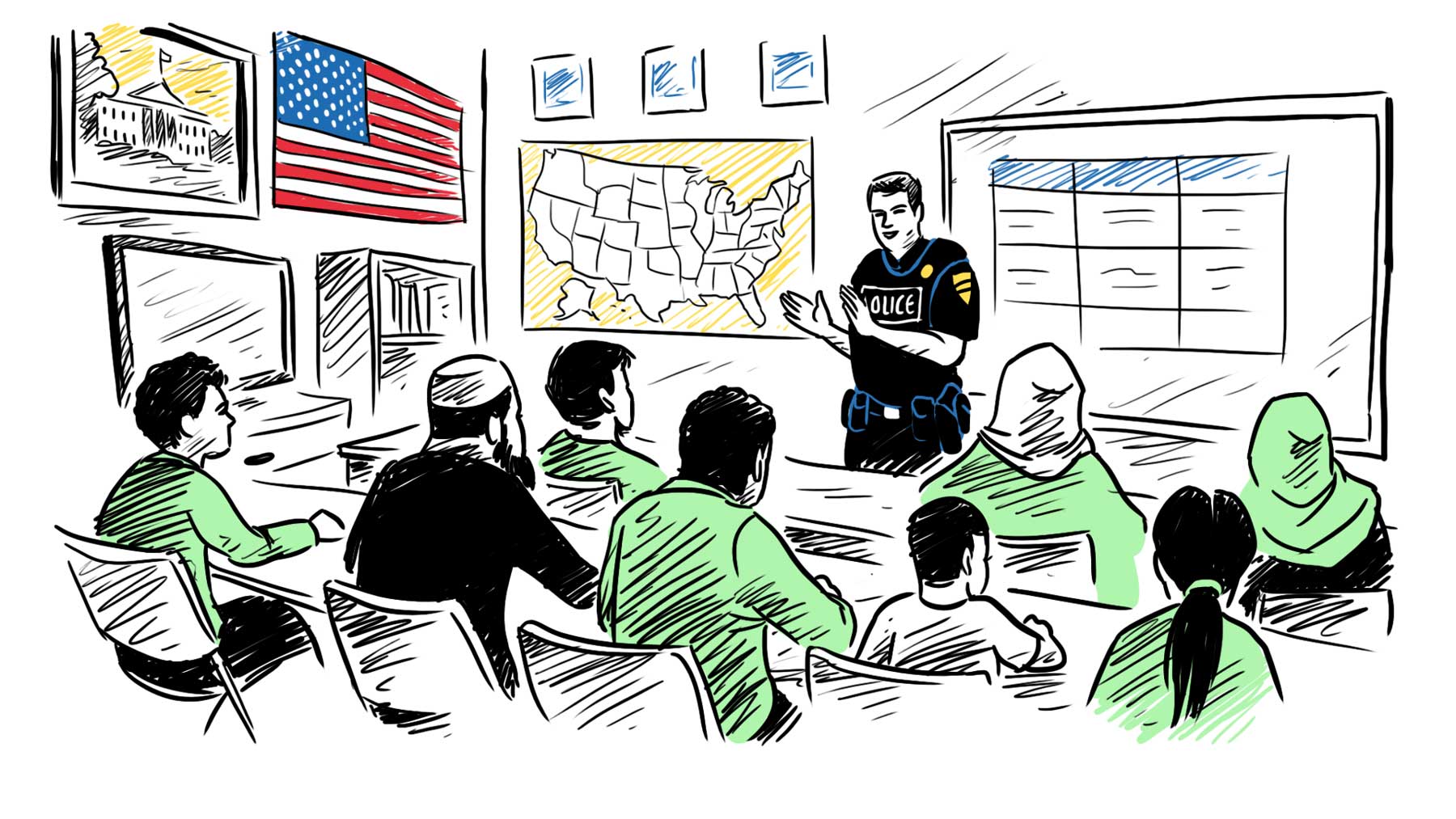
Public Safety and Police Interactions
Laws in the U.S. aim to protect the rights of all people, including refugees. Every person who lives in the U.S. is responsible for upholding the rule of law and taking responsibility for their personal safety. The police enforce the law, maintain public order and safety, and protect individuals’ civil rights. Refugees coming to the U.S. may have different experiences and perceptions of law enforcement and public safety. As such, this lesson gives CO providers guidance on navigating discussions and delivering key messages to refugees on the role of police in the U.S. and how to interact with police in their communities.
Download Lesson Plan- The role of the police in the U.S. is to maintain public order and safety, enforce the law, and protect the civil rights of individuals in communities across the country.
- Refugees may encounter police in a variety of situations in their communities and should be aware of appropriate ways to interact if they encounter police in any setting.
- Refugees have certain legal rights during police encounters including the right to an interpreter, the right to remain silent, and access to a lawyer if accused of breaking a law and/or arrested.
- While the local Resettlement Agency will assist refugees in learning about U.S. laws, it is also the responsibility of refugees to know and follow the laws.
- Refugees, like all people in the U.S., can face consequences if they break the law even if they do not know about the law they broke.
After this lesson, participants will be able to:
- Explain the role of the police in the U.S. and within their community;
- List situations where they may encounter police in their communities;
- Identify the proper steps to take when encountering police in different settings and situations;
- Explain their rights to an interpreter and to legal assistance if they are accused of breaking a law and arrested;
- Recognize their roles and responsibilities in relation to public safety, particularly when interacting with police.
- How to Interact with the Police in the U.S. fact sheet (1 per participant), podcast, or video
- Copies of How to Interact with the Police in the U.S. Guided Discussion Worksheet (1 per participant)
- Copies of scenarios (as selected)
- Flip-chart
- Markers
Resources on Trauma-Informed Care
- U.S. Department of Health and Human Services: Trauma-Informed Resources Specific to Immigrant or Refugee Populations
- Trauma-Informed Care: Movement Towards Practice webinar and information guide from Switchboard
- Trauma-Informed Care: Preventing Crises and De-escalating Difficult Situations webinar and information guide from Switchboard
Resources for Parents and Youth
- Practices in Modern Policing: Police-Youth Engagement
- Embrace Race: Moving ‘The Talk’ to ‘The Walk’ for Black Children
- Center for Racial Justice in Education: Resources for Talking about Race, Racism and Racialized Violence with Kids
Resources for Building Partnerships with Police
- Strengthening Relationships between Police and Immigrant Communities in a Complex Political Environment: Multicultural Outreach and Engagement Programs for Police Agencies
- Building Trust with Immigrant Communities: Best Practice for Law Enforcement Agencies in Smaller Cities and Towns
Resources on Rights and Responsibilities
- Know Your Rights from ACLU
- Immigrant Defense Project FAQ
- Know Your Rights Guides from CAIR
- Immigration Consequences of Crimes Summary Checklist


